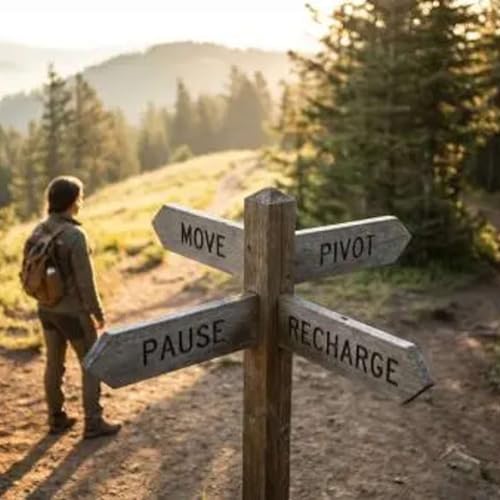In this episode of Beyond Your Default, George and I dive into one of the most transformative frameworks in personal growth: the Four Cornerstones of the Superhuman Framework. This isn’t just about ticking off a list of personal goals. It’s about creating a foundation that aligns with our deepest values—passion, purpose, persistence, and love. These aren’t just ideals. They’re actionable principles that help us live a more integrated, balanced, and fulfilled life, well beyond the “default” mode that most people settle for.
🌱 Subscribe to the Beyond Your Default newsletter for weekly doses of inspiration!
The Four Cornerstones of the Superhuman Framework aren’t just theory—they’re a blueprint to shift how we show up in the world. In this episode, George and I break down each cornerstone and discuss what it looks like to embrace them fully. If you’ve ever felt like there’s more to life but weren’t sure how to tap into it, this conversation will give you the tools to do so.
Key Highlights from Our Conversation
1. Defining the Four Cornerstones: George walks us through the core principles—Passion, Purpose, Persistence, and Love—and explains how these cornerstones work together to form a balanced, powerful approach to life and work. We talk about why they’re essential not just for high achievers but for anyone looking to live a more intentional life.
2. Passion: Fueling Our Journey
Passion isn’t just a buzzword; it’s the energy that drives us forward, even when the going gets tough. George shares personal stories of how passion has been his compass, helping him navigate both successes and setbacks. We dive into why finding and nurturing our passions is critical to a fulfilling life.
3. Purpose: The Anchor in the Storm
Purpose gives us direction. It’s not about following someone else’s roadmap but discovering what we’re truly here to do. We discuss how identifying and aligning with our purpose provides a sense of stability, even in chaotic times. George shares insights on how to find your purpose and let it guide your decisions.
4. Persistence: The Power to Keep Going
Persistence is the grit that keeps us moving when passion alone isn’t enough. George talks about the importance of resilience, especially for high achievers who often face burnout. We explore practical ways to cultivate persistence, so you can stay the course without sacrificing your well-being.
5. Love: The Core of It All
Love isn’t just a feeling; it’s the thread that connects everything we do. From loving the people around us to finding self-compassion, love fuels our ability to live authentically. George explains why love is the cornerstone that holds everything together and how we can all bring more of it into our daily lives.
Why This Matters
The Four Cornerstones of the Superhuman Framework offer a path to living beyond the superficial markers of success. This episode is a reminder that life is more than just achieving goals; it’s about becoming a person who lives with integrity, resilience, and genuine connection. If you’re ready to challenge the default settings of your life and embrace something deeper, this episode is for you.
Related Episodes:
How to Cultivate Passion in Everyday Life
Finding Purpose in Uncertain Times
Building Resilience: Persistence Without Burnout
Practicing Self-Compassion and Love
Powerful Quotes from the Episode
“Passion fuels the journey, but purpose gives it direction.”
“Persistence isn’t about ignoring the obstacles; it’s about knowing why you’re willing to face them.”
“Love is the cornerstone that holds everything together. Without it, all the success in the world feels empty.”
“When you live with purpose, every decision feels like a step toward something meaningful.”
If you’re ready to embrace a framework that goes beyond the hustle, tune in to this episode and start building your superhuman foundation.
 1 h
1 h 55 m
55 m 53 m
53 m 56 m
56 m 1 h y 3 m
1 h y 3 m 1 h y 8 m
1 h y 8 m 1 h y 13 m
1 h y 13 m Sep 4 202452 m
Sep 4 202452 m
